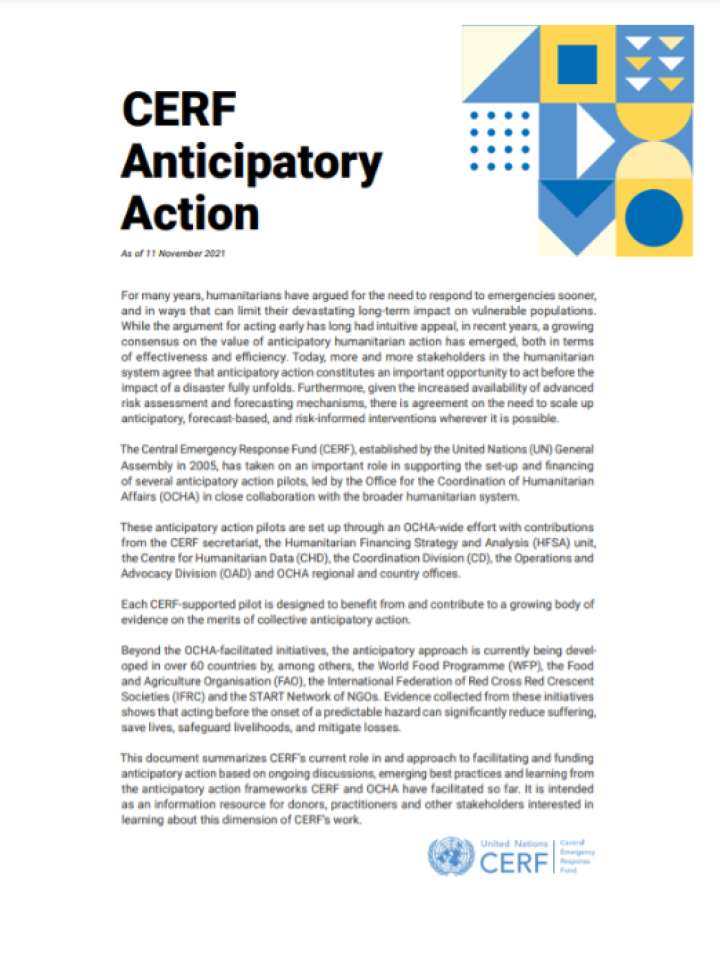CERF anticipatory action
This document summarizes the Central Emergency Response Fund's (CERF) current role in and approach to facilitating and funding anticipatory action based on ongoing discussions, emerging best practices and learning from the anticipatory action frameworks CERF and the United Nations Office for the Coordination of Humanitarian Affairs (OCHA) have facilitated so far. It is intended as an information resource for donors, practitioners and other stakeholders interested in learning about this dimension of CERF’s work. These anticipatory action pilots are set up through an OCHA-wide effort with contributions from the CERF secretariat, the Humanitarian Financing Strategy and Analysis (HFSA) unit, the Centre for Humanitarian Data (CHD), the Coordination Division (CD), the Operations and Advocacy Division (OAD) and OCHA regional and country offices. Each CERF-supported pilot is designed to benefit from and contribute to a growing body of evidence on the merits of collective anticipatory act.
This report finds that significant progress has been made towards scaling up anticipatory action and, by extension, moving the broader humanitarian system from traditionally responsive to anticipatory approaches. Building on growing evidence that acting before the onset of a predictable hazard can significantly reduce the impact and costs of a humanitarian emergency, CERF has played a crucial role in advancing the anticipatory action agenda. Going forward, further mainstreaming anticipatory action into CERF’s Rapid Response function and exploring options for sustaining and expanding the approach in the pilot countries, including with the support of other funding mechanisms, will be priorities.
Explore further
